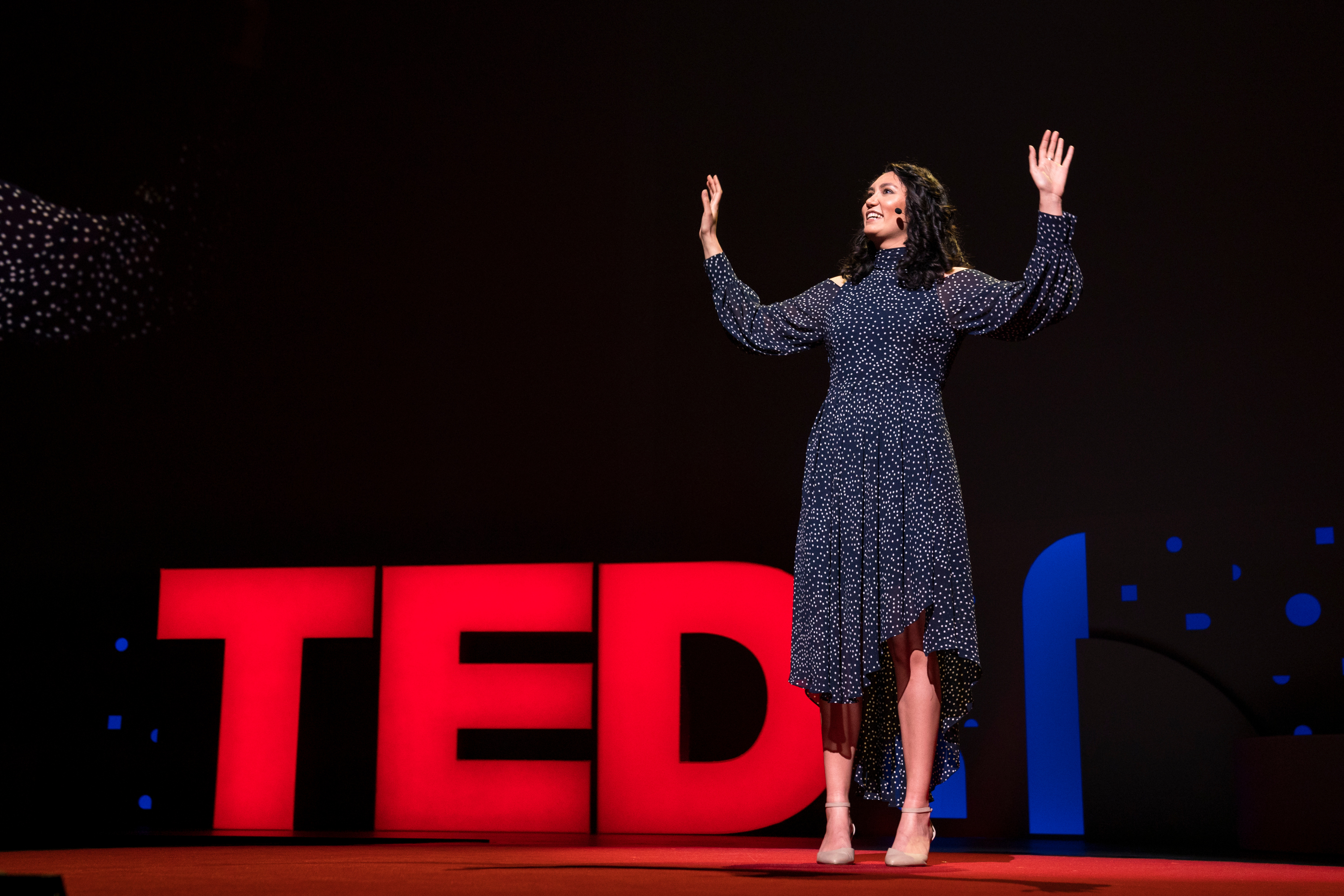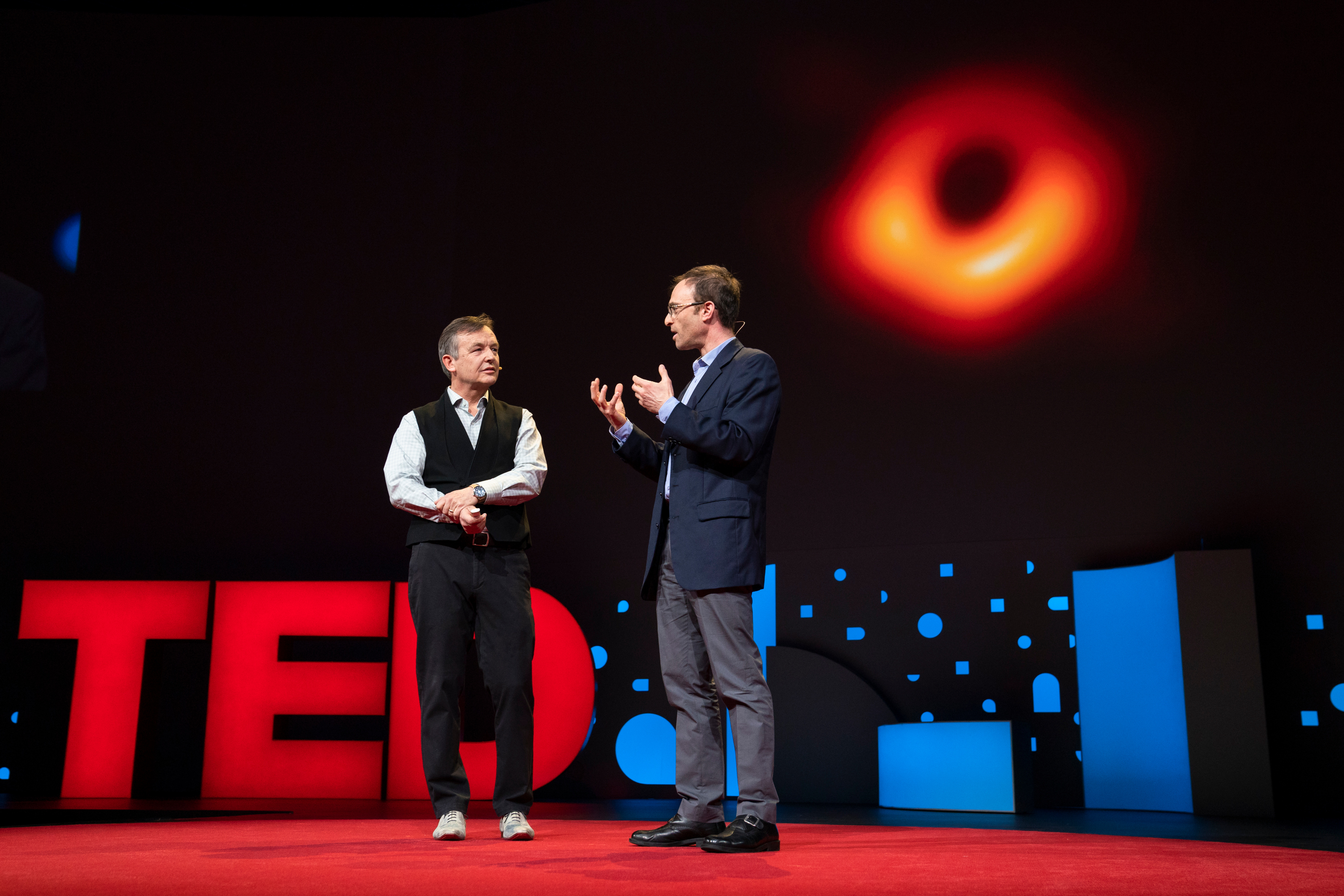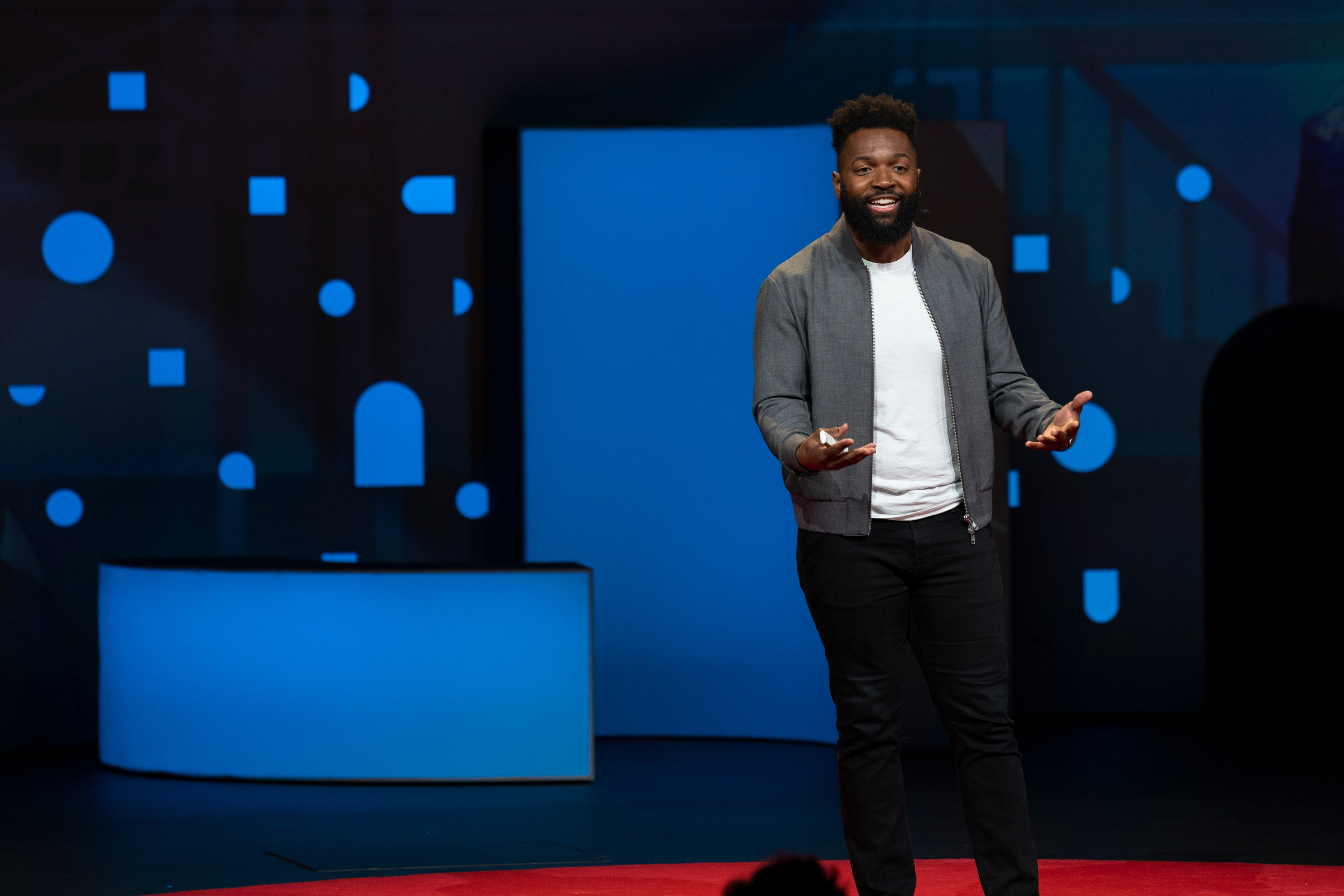
Poet and educator Sarah Kay encourages us to welcome the beauty of the universe, however it may appear. She speaks during Session 1 of TED2019: Bigger Than Us, on April 15, 2019 in Vancouver, BC, Canada. (Photo: Bret Hartman / TED)
The world feels fragile these days, a bit wobbly. How do we figure out a way forward? At TED2019, we’re taking a painfully honest look at what’s going on, laying out shared values, exploring a common purpose — and seeing how we can build something meaningful together: an idea, vision, ambition that’s bigger than us.
The event: Talks and performances from TED2019, Session 1: Truth, hosted by TED’s Chris Anderson and Helen Walters.
When and where: Monday, April 15, 2019, 5pm, at the Vancouver Convention Centre in Vancouver, BC.
Speakers: Sarah Kay, Sheperd Doeleman, Carole Cadwalladr, Frank Luntz, Baratunde Thurston and Hamdi Ulukaya.
Music: Swedish folk duo First Aid Kit, performing three original songs: “King of the World,” “Nothing Has to Be True” and “My Silver Lining.”
The talks in brief:
Sarah Kay, poet and educator
- Big idea: What does it mean to embrace the beauty of life around us?
- How? In a thoughtful and stirring spoken-word piece, Sarah Kay encourages us to welcome the beauty of the universe, however it may appear. From starlings bursting into flight to the enormous heart of a blue whale, the poetry of life is within our reach.
- Quote of the talk: “Maybe it’s not my job to invent something new. Maybe, instead, it’s my job to listen to what the universe is showing me.”

How can you see the unseeable? Astrophysicist Sheperd Doeleman explains how his global team behind the Event Horizon Telescope captured the first-ever image of a black hole. He speaks with TED’s Chris Anderson during Session 1 of TED2019: Bigger Than Us, April 15, 2019, Vancouver, BC, Canada. (Photo: Bret Hartman / TED)
Sheperd Doeleman, director of the Event Horizon Telescope project
- Big idea: We have the first image of a black hole … and that’s awesome!
- How? 100 years ago, Einstein predicted we would see a circle of bright light around a black hole, should we ever image one. Last week, Doeleman’s global team of 200 researchers across 60 countries announced just that. Using an international array of telescopes synced with atomic clocks, the Event Horizon Telescope imaged the supermassive black hole that lies at the center of a galaxy 55 million light years away. The ring of light we see in the image is the orbit of photons (particles of light) around the black hole. The dark region in the center is the event horizon, and our entire solar system would fit inside it. Doeleman discusses his team’s findings with TED’s Chris Anderson. (You can learn more about how this image was created from Katie Bouman, who created an algorithm central to the project’s success.)
- Quote of the talk: “Black holes really are the central mystery of our age because that’s where the quantum world and the gravitational world come together.”
Carole Cadwalladr, investigative journalist for the Guardian and Observer and Pulitzer Prize finalist
- Big idea: Online platforms need to be accountable for their potential to influence voters.
- How? Targeted Facebook ads played a decisive role in the Brexit referendum. But when Cadwalladr and her colleagues wanted to see what British voters saw in the leadup to the 2016 referendum, they found that while some people mentioned seeing “quite scary stuff about immigration” on Facebook, it was difficult to know what ads they had been shown, or how they had been targeted. Cadwalladr uncovered that a company called Cambridge Analytica used data illegally harvested from Facebook to target these ads at voters deemed most susceptible to influence. As she says: “It was the biggest electoral fraud in Britain for 100 years.” Cadwalladr calls for Mark Zuckerberg and other social media leaders to stand accountable for how their platforms can be used to influence democracy. Read a full recap of her talk here.
- Quote of the talk: “It is not about left or right, or Leave or Remain, or Trump or not. It’s whether it’s actually possible to have a free and fair election ever again. As it stands … I don’t think it is.”
Frank Luntz, communications advisor, pollster and wordsmith whose work coining terms like “climate change” and the “death tax” helped to define contemporary American politics
- Big idea: It’s not what you say, it’s what people hear. To effectively communicate, we need to change the words we use that alienate people we disagree with.
- How? Luntz provides a list of words to lose and words to use — for those on both the left and right. For example, instead of saying “tolerance,” which implies mere acceptance without embracing, we should be talking about “mutual respect,” which says that you have something to learn from everyone. And instead of “human capital,” which communicates that people are just a profit center, we should be talking about “human talent,” which respects individuals. Luntz also calls on American presidential candidates in 2020 to commit to no-negativity campaigns, and he urges each of us listen, learn and use language to lead.
- Quote of the talk: “Populism is a great way to get elected, and it is a horrible way to govern.”

“Systems are just collective stories we all buy into. When we change them, we write a better reality for us all to be a part of,” says writer and activist Baratunde Thurston. He speaks during Session 1 of TED2019: Bigger Than Us, April 15, 2019, Vancouver, BC, Canada. (Photo: Marla Aufmuth / TED)
Baratunde Thurston, humorist, activist and writer of the New York Times bestseller How to Be Black
- Big idea: White supremacy isn’t confined to those who consciously believe it. It’s implicit in the structure of our society — from the police to white people who call the cops on people of color merely because they make them feel uncomfortable. But we can change that structure — by changing our narratives.
- How? By making a game out of analyzing all-too-familiar headlines — e.g., “White Woman Calls Police on Eight-Year-Old Black Girl Selling Water” or “White Woman Calls Cops on Black Woman Waiting for Uber” — Thurston shows how African Americans are being punished for their mere existence. And by rewriting the headlines, we can imagine new outcomes for those narratives, change our behavior accordingly and, perhaps, begin to dismantle white supremacy.
- Quote of the talk: “Systems are just collective stories we all buy into. When we change them, we write a better reality for us all to be a part of. I am asking us to use our power to choose.”
Hamdi Ulukaya, founder and CEO of Chobani
- Big idea: The CEO playbook that has powered corporate America for decades is broken. We need a new playbook — an “anti-CEO playbook” — that benefits employees and local communities, instead of making shareholders rich. And consumers can use their power to help create it.
- How? There are four key values of the anti-CEO playbook: community, responsibility, gratitude and accountability. Companies can — and should — help build up struggling communities, instead of simply seeking out areas with tax breaks or incentives. That’s why Ulukaya built his second yogurt factory in a rural town in Idaho. Anti-CEOs should also hold themselves accountable to their consumers. After all, Ulukaya says, consumers have the buying power to support brands that treat their employees well. Taken together, when consumers refuse to buy from companies that put profit in front of people — and when CEOs follow the new playbook — we can create a better way of doing business.
- Quote of the talk: “Today’s playbook says: business exists only to maximize profit and make shareholders rich. I think that’s the dumbest idea I’ve ever heard. The truth is: business should take care of employees first.”